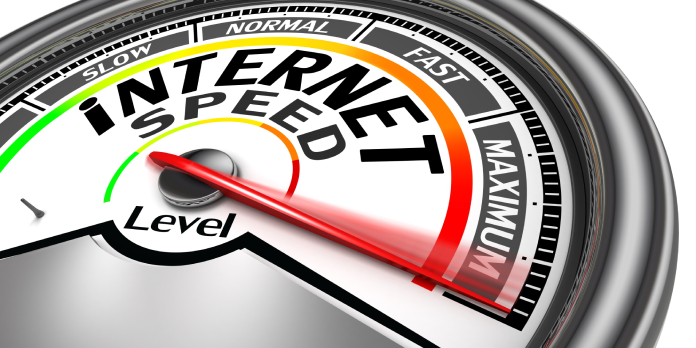Here we can see, “Can Vpn Increase Your Internet Speed?”
- A VPN can do many things, but the question of whether or not it can enhance your Internet speed remains a mystery.
- A VPN can help you boost your Internet speed in a few situations, one of which has to do with your Internet service provider.
It can do many things, but the question of whether or not it can enhance your Internet speed remains a mystery.
If you’ve read any of our other tips, you’ve definitely come across one that describes how a VPN can slow down your Internet speed. As a result, you can be perplexed.
We promise that this does not contradict our earlier essay, and you’ll see why shortly. But first, let’s go over the basics.
Does VPN make your connection faster?
This is one of the most common rumors you’ll hear among VPN enthusiasts online. People will tell you that investing in a reliable VPN can help you get a faster connection.
They would also not be incorrect. However, it will not transform a poor 1 Mbps connection into a Gigabit Ethernet connection. Your connection must meet certain conditions for a VPN to assist you in boosting download/upload speed and quality.
1. Is your ISP limiting your connection?
Many ISPs, sadly, use artificially delaying your connection as a standard practice. Some ISPs use a dirty technique that selectively lowers your bandwidth based on your behavior to save money.
You can notice some speed limitations when playing games on your PC, streaming multimedia content, or torrenting huge files. This is known as throttling, and your ISP is solely responsible.
Some service providers will even restrict your entire bandwidth, regardless of what you do. So even if you paid full price for a gigabit connection, you’re only getting a few megabits per second.
What’s worse, most ISPs will try to blame it on other reasons like peak hours, technical challenges, infrastructure (which they must also maintain), etc.
If any of this sounds all too familiar, we have some good news for you. A VPN can assist you in escaping your ISP’s hungry grasp. In other words, in this case, a VPN can make your connection speedier.
2. Bad traffic routing
Okay, since you can’t truly access the Internet without your ISP, this is still your ISP’s problem. Can you do it? In any case, we’ve previously established that one of your ISP’s obligations is infrastructure.
The vast portion of the network between you and the destination host you’re trying to access is referred to as infrastructure.
Essentially, the route between you and the website/server you’re trying to access should be direct for a fast connection.
Things are really different in reality. Your connection bounces several times before reaching its destination, which is convenient for maintenance and debugging but inconvenient for speed.
Customers should have as few bounces and distances as possible before their traffic reaches its destination if connection management is done properly.
On the other hand, some Internet service providers force their customers’ traffic to travel needlessly long routes to their destination. As a result, the connection’s speed decreases, latency rises, and you may experience packet loss and jitter. As is customary.
If you feel this is the case, a VPN can encrypt your traffic and help you get around the poorly-routed network. It’s not guaranteed to work every time, but you’ll notice a significant increase in speed when it does.
How to increase Internet speed using VPN?
1. Connect to a nearby server
The farther away your destination website is, the longer it will take you to get there. VPNs are the same way. When you connect to a server on another continent, you might find that your connection is even slower than before.
Connect to a VPN server that is as close as possible to you. If your ISP is throttling your Internet connection, speeding it up will yield significantly better results.
2. Change your DNS
Private DNS is available with some VPNs, such as Private Internet Access. As a result, you don’t need to do anything other than starting the client and connect to your preferred server.
However, make sure PIA DNS is selected as your default name resolver.
If your VPN doesn’t have this option, you may use Google, Cloudflare, or OpenDNS, which are all free DNS services. Compared to your current connection speed, you may notice a big improvement.
3. Try using wired connections
We’ve already established that VPN impacts WiFi, particularly in terms of speed. Because WiFi is often slower than Ethernet, it stands to reason that utilizing a VPN would make it even slower.
If you want to see a real boost in your connection speed, you should try switching to a wired connection first.
Sometimes, a VPN can increase your Internet speed
To summarize, it appears that a VPN can improve your internet connection speed. In other words, a VPN can speed up your connection, but it won’t always function.
A VPN, for example, will not instantaneously increase your connection speed from 100 MBps to 1 GBps. However, it may be able to assist you in getting over any ISP limits or constraints, such as bandwidth throttling, faulty peering, or incorrect routing.
Conclusion
I hope you found this guide useful. If you’ve got any questions or comments, don’t hesitate to use the shape below.
User Questions
1. I have a weird question, but “Can a VPN increase your internet
I have a weird question, but "Can a VPN increase your internet speed?" from VPN
2. Does VPN make your internet faster or slower? – Reddit
3. Can a vpn increase internet speed if i have really slow
Can a vpn increase internet speed if i have really slow bandwith? from VPN



